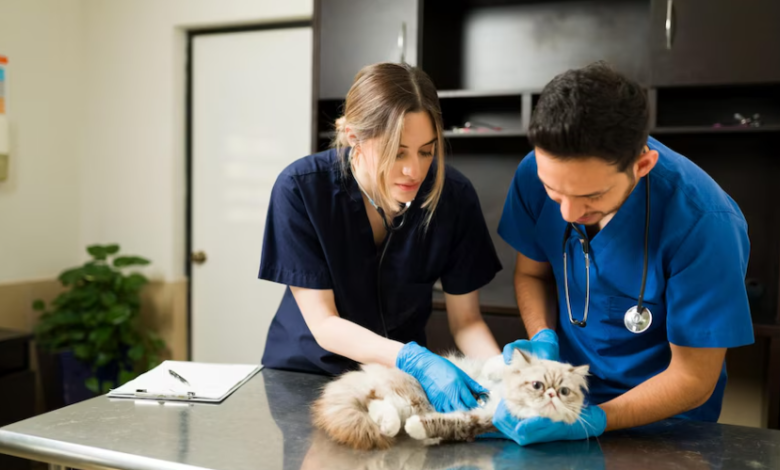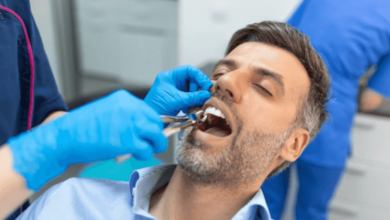What to Expect During Your First Visit to Our Orillia Vet Clinic

Visiting a vet for the first time can feel a bit overwhelming. You want to make sure you’re prepared, and that your pet gets the best care possible. Our Orillia vet clinic is here to help you every step of the way. This guide will walk you through what to expect during your first visit, so you can feel confident and ready to take care of your furry friend.
Key Takeaways
- Gather important documents like vaccination records and any previous medical history before your visit.
- Check our policies on cancellations and rescheduling to avoid any surprises.
- Bring your pet’s favorite items, such as a leash or carrier, to help them feel comfortable.
- Expect a thorough check-in process, where our staff will collect your information and answer any questions you have.
- After the visit, we’ll provide clear instructions for follow-up care and any treatments your pet may need.
Preparing For Your Visit
Getting ready for your pet’s first visit to our Orillia clinic? Here’s a quick rundown to make things go smoothly. It’s all about being prepared, so you and your furry friend have a good experience.
Gathering Necessary Documents
First things first, paperwork! Make sure you bring any relevant medical records for your pet. This includes vaccination history, previous diagnoses, and any medications they’re currently taking. If you adopted your pet, bring any adoption papers you have. The more information we have, the better we can understand your pet’s health history.
Understanding Our Policies
We want to make sure everyone is on the same page. Here are a few key policies to keep in mind:
- All pets must be properly restrained. This means dogs should be on a leash, and cats (or other small animals) should be in a carrier.
- For the safety of our staff and other animals, we require proof of up-to-date vaccinations.
- Payment is due at the time of service. We accept several payment methods, which we’ll cover later.
We strive to create a calm and welcoming environment for all our patients. Please be mindful of noise levels and keep your pet under control in the waiting area.
What To Bring For Your Pet
To make your pet feel more comfortable, consider bringing a few familiar items:
- A favorite toy or blanket can help reduce anxiety.
- High-value treats can be a great distraction during the examination.
- If your pet is prone to accidents, bring some cleaning supplies, just in case.
Also, if you’re coming in for a specific issue, it can be helpful to bring a sample. For example:
- Fecal sample (fresh, if possible) if your pet has digestive issues.
- Urine sample (collected that day) if you suspect a urinary tract infection.
- Photos or videos of any concerning behavior or symptoms you’ve observed at home.
What To Expect Upon Arrival
So, you’ve booked your first appointment at our Orillia clinic – great! Here’s a little peek into what you can expect when you and your furry, scaly, or feathered friend arrive.
Check-In Process
When you walk in, our friendly receptionist will greet you. They’ll confirm your appointment and ask for any updated contact information. If you’re a new client, they’ll have a short form for you to fill out, covering your pet’s history and your contact details. To make things faster, you can often find these forms on our website to complete beforehand. We’ll also need to see any relevant paperwork you’ve brought, like vaccination records or previous medical history.
Initial Assessment
Before the vet sees your pet, a veterinary technician might do a quick initial assessment. This usually involves checking your pet’s weight, temperature, and heart rate. They might also ask you some questions about why you’re visiting, any symptoms you’ve noticed, and your pet’s general behavior. This helps the vet get a head start on understanding what’s going on.
Waiting Area Experience
Our waiting area is designed to be as comfortable as possible for both you and your pet. We have separate seating areas for cats and dogs to minimize stress. You’ll find:
- Magazines and brochures about pet care.
- A water bowl for thirsty pets.
- Sometimes, we have treats available (ask the receptionist!).
We understand that waiting can be stressful, especially if your pet is anxious or unwell. We do our best to keep things running on time, but sometimes emergencies happen that can cause delays. We appreciate your patience and understanding if there’s a wait. If you’re concerned about your pet’s comfort while waiting, please let us know, and we’ll do our best to accommodate you.
Meeting Our Veterinary Team
Introduction To Our Veterinarians
When you visit our orillia vet clinic, you’ll meet some pretty great vets. They’re not just here to treat your pet when they’re sick; they’re also here to help you keep your pet healthy. They’ll chat with you about your pet’s history, do a thorough exam, and explain everything in a way that makes sense. They really care about animals, and it shows.
Role Of Veterinary Technicians
Our veterinary technicians are super important to our team. They’re like the vet’s right hand, helping with everything from taking blood samples to monitoring anesthesia during surgery. They’re also the ones who will often give you instructions on how to care for your pet at home after a visit. They’re skilled, compassionate, and a huge asset to our orillia vet clinic.
Support Staff Responsibilities
Our support staff is the backbone of our clinic. They’re the friendly faces you see when you walk in the door, and they’re always ready to help with whatever you need. They handle appointments, answer phones, manage records, and make sure everything runs smoothly behind the scenes. They’re all about making your visit as stress-free as possible.
The team at our orillia vet clinic works together to provide the best possible care for your pet. We believe in open communication and collaboration, so you can always feel comfortable asking questions and sharing your concerns. We’re all here to support you and your furry friend.
During The Examination
What Happens During An Exam
Okay, so you’re in the exam room. What’s next? Well, first, the vet will usually start by just observing your pet. They’re looking at their overall demeanor, how they’re moving, and if anything seems immediately off. Then comes the hands-on part. They’ll check your pet’s eyes, ears, nose, and mouth. They’ll listen to their heart and lungs with a stethoscope and feel their abdomen to check for any abnormalities. They’ll also check their skin and coat for any signs of fleas, ticks, or other issues. The goal is to get a good overall picture of your pet’s health.
Common Procedures Explained
Sometimes, the vet will need to do more than just a basic exam. Here are a few common procedures you might encounter:
- Vaccinations: These are usually quick injections to protect your pet from diseases. The vet will explain which vaccines are needed based on your pet’s age, lifestyle, and location.
- Blood Tests: A small blood sample can tell the vet a lot about your pet’s organ function, blood cell counts, and more. It’s a pretty standard way to check for underlying health problems.
- Fecal Exams: Yep, it’s exactly what it sounds like. A small stool sample helps the vet check for intestinal parasites. It’s not glamorous, but it’s important!
Addressing Your Concerns
This is your time to shine! Don’t be shy about asking questions or voicing any concerns you have about your pet’s health. The vet is there to help, and they want to make sure you understand everything that’s going on. Write down your questions beforehand so you don’t forget anything. If you’re worried about a specific symptom, be sure to describe it in detail. The more information you can give the vet, the better they can help your furry friend.
Remember, no question is too silly. It’s always better to ask and get clarification than to leave feeling confused or worried. We want you to feel confident in the care your pet is receiving.
Post-Visit Care Instructions
After your pet’s visit to our clinic, it’s super important to follow the care instructions we provide. We want to make sure your furry friend recovers well and stays healthy! It can be a little overwhelming, so we’ve broken down what you need to know.
Understanding Treatment Plans
So, we’ve given you a treatment plan. What does it all mean? Basically, it’s a roadmap for your pet’s recovery. It will include things like medication schedules, dietary changes, and activity restrictions. Make sure you read it carefully and don’t hesitate to ask if anything is unclear. Sometimes, we might recommend specific brands of food or types of toys. We do this because we know they’re safe and effective for your pet’s condition. Sticking to the plan is key to getting your pet back to their old self.
Follow-Up Appointments
Follow-up appointments are a big deal. They allow us to monitor your pet’s progress and make any necessary adjustments to the treatment plan. Think of it like this: we’re checking to see if the medicine is working or if the diet change is making a difference. We usually schedule these appointments before you leave, but if you’re unsure, just give us a call. Missing these appointments can delay your pet’s recovery, so please mark them on your calendar!
Emergency Care Information
Okay, let’s talk about emergencies. It’s always good to be prepared, even if you hope you’ll never need it. We’ll provide you with information on what to do in case of an emergency, including:
- Signs of a medical emergency in your pet
- Our clinic’s after-hours contact information
- The location of the nearest emergency veterinary clinic
It’s a good idea to keep this information readily available, like on your fridge or in your phone. You never know when you might need it, and in an emergency, every second counts.
We also recommend familiarizing yourself with basic pet first aid. There are tons of resources online and in libraries. Knowing how to handle a minor wound or recognize signs of distress can make a huge difference until you can get your pet to a vet.
Payment Options And Insurance
Accepted Payment Methods
At our Orillia clinic, we try to make paying for your pet’s care as easy as possible. We get that vet bills can sometimes be unexpected, so we have a few options. We accept cash, debit cards, and major credit cards (Visa, Mastercard, American Express). We also take mobile payments like Apple Pay and Google Pay. If you have any questions about a specific payment method, just give us a call!
Pet Insurance Guidance
Pet insurance is becoming more and more popular, and for good reason! It can really help with those unexpected vet costs. We’re happy to work with most pet insurance providers. Here’s how it usually works:
- You pay us directly for the services.
- We’ll provide you with all the necessary documentation (like invoices and medical records).
- You submit a claim to your pet insurance company.
- They reimburse you according to your policy.
We don’t directly bill insurance companies, but we’re always here to help you navigate the claims process. If you’re thinking about getting pet insurance, it’s a good idea to shop around and compare different policies to find one that fits your needs and budget.
Financial Assistance Programs
We understand that sometimes, affording veterinary care can be a challenge. We don’t want finances to be a barrier to your pet getting the care they need. While we don’t have direct payment plans, we can suggest some financial assistance programs that might be able to help. These programs are usually run by non-profit organizations and offer assistance to pet owners who qualify. It’s worth checking them out if you’re struggling to cover the costs of your pet’s treatment.
It’s important to discuss any financial concerns with us openly. We can help you prioritize treatments and explore all available options to ensure your pet receives the best possible care within your budget.
Client Education Resources
Accessing Online Resources
We believe that informed pet owners make the best decisions for their furry friends. That’s why we’ve put together a collection of online resources to help you stay up-to-date on all things pet-related. Our website features a library of articles, videos, and guides covering a wide range of topics, from basic pet care to specific health conditions.
- Informative articles on common pet health issues.
- Training tips and behavior advice.
- Nutrition guides for different life stages.
We are committed to providing you with the tools and information you need to keep your pet happy and healthy. Our online resources are a great place to start, but don’t hesitate to reach out to us with any questions you may have.
Workshops And Events
We regularly host workshops and events at our clinic to provide hands-on learning opportunities for pet owners. These sessions cover a variety of topics, such as pet first aid, nutrition, and behavior training. Keep an eye on our website and social media pages for upcoming events!
Staying Informed About Pet Health
Staying informed about pet health is an ongoing process. We encourage you to ask questions during your pet’s appointments and to take advantage of the resources we offer. We also use lifelearn client ed to provide you with the most up-to-date information on pet health. We want to be your partner in keeping your pet healthy and happy for years to come.
Here’s a quick guide to some common health concerns and where to find more information:
| Health Concern | Where to Learn More |
| Allergies | Our website’s allergy guide, upcoming workshops |
| Dental Care | Articles on dental hygiene, ask your vet during visits |
| Parasite Control | Information pamphlets at the clinic, online resources |
Wrapping Up Your First Visit
So, there you have it! Your first trip to our Orillia vet clinic should be pretty straightforward. You’ll meet our friendly staff, get a feel for the place, and your pet will get the care they need. Don’t stress too much about it; we’re here to help you and your furry friend. Just bring any questions you have, and we’ll do our best to answer them. We can’t wait to see you and your pet soon!
Frequently Asked Questions
What should I bring to my first visit?
Make sure to bring your pet’s medical records, any medications they are taking, and a list of questions you may have.
How long will the appointment take?
Your first visit usually takes about 30 to 60 minutes, depending on your pet’s needs.
Can I stay with my pet during the exam?
Yes! You are welcome to stay with your pet during the exam to help them feel more comfortable.
What if my pet needs special treatment?
If your pet needs extra care, we will explain everything and create a treatment plan that works for you.
Do you accept pet insurance?
Yes, we accept many types of pet insurance. It’s good to check with your provider about coverage.




